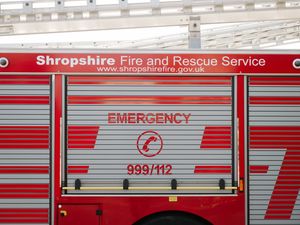Dr Mary McCarthy: We should be supporting junior doctors not deterring them
As junior doctors took part in the first ever full walk-out in NHS history, senior colleagues were on hand to lend their support.
Following a day on the picket lines, junior doctors from Shrewsbury joined hundreds of fellow medics from across the West Midlands to attend a rally outside the Queen Elizabeth Hospital in Birmingham to protest against the contract imposition.
At the Hummingbird Centre, the diabetic clinic had a full quota of patients, as consultants and senior staff joined receptionists and nurses to provide cover and ensure it was business as usual.
There was a sense of solidarity amongst the healthcare profession as even a recently retired consultant retuned to help out as many patients were treated by more highly qualified medics than on a normal day.
Despite the strong support, it was a sad time for many like myself who regret that the dispute has reached this stage with the Health Secretary dismissing a last ditch cross-party plea to pilot the contract before imposing.
This seems like a sensible option and would avoid the fallout from the potentially disastrous consequences of proceeding with an unpopular contract that could set us back rather than helping the NHS progress.
Jeremy Hunt says that it is being imposed because it was in the Conservative manifesto. Yet the government hasn't stood by its promise of "No Top-down Reorganisation of the NHS".
Surely something as important as the junior doctor contract should be reached by a deliberated mutual agreement rather than being bulldozed through.
The BMA junior doctor committee has again reiterated that they will call off the strike if the threat of imposition is lifted. They feel very strongly that the proposed contract is not safe for patients nor fair for them.
The junior doctors are more than aware of the current failings of the system and the rota gaps that need to be filled. However, with no extra money and no extra doctors these problems can't be remedied.
The government's answer is a new contract that stretches staff from providing a five day normal service and seven day emergency service to a seven day normal service and seven day emergency service with no extra provisions or support in place.
It is little wonder that junior doctors are applying to the General Medical Council for certificates to enable them to work abroad and applications for medical schools have gone down.
Jeremy Hunt feels that public support for the junior doctors will fade away and that may be so. My fear is that the junior doctors will fade away.
Medical qualifications are, in most countries, a valued skill and doctors are appreciated for their dedication and work ethic. Scotland and Wales are not imposing this contract and it is relatively easy to move a few miles west or north.
We are currently short of doctors and have fewer for our population than most other European countries. We need to think of ways to attract doctors not deter them.
Whatever the solution, we need something to break this log-jam.



